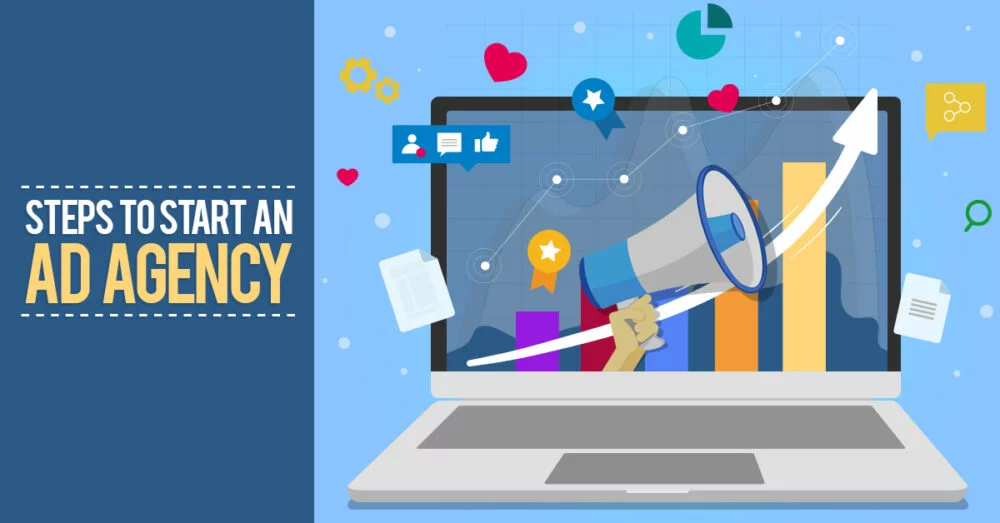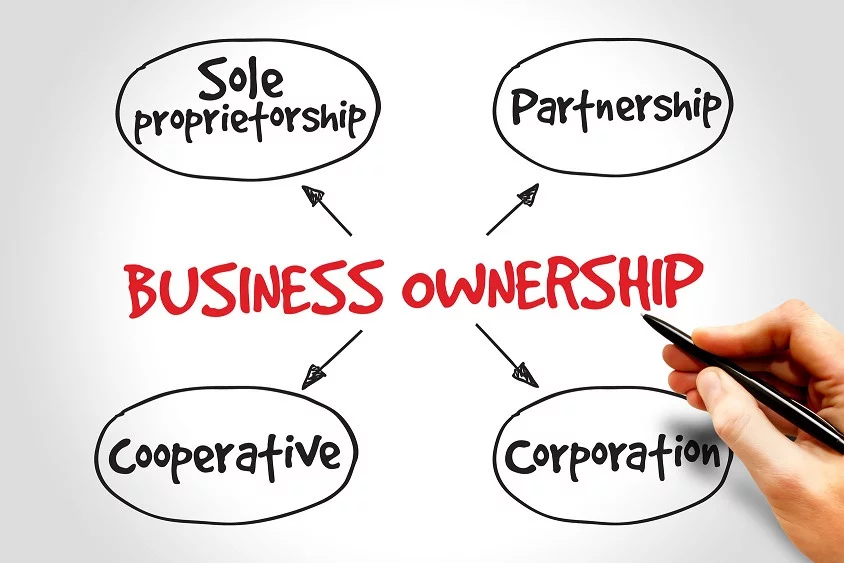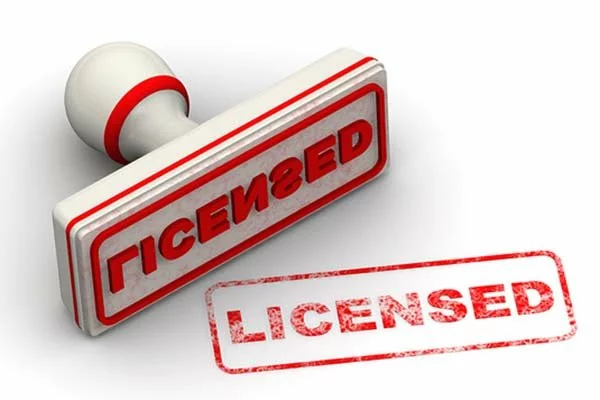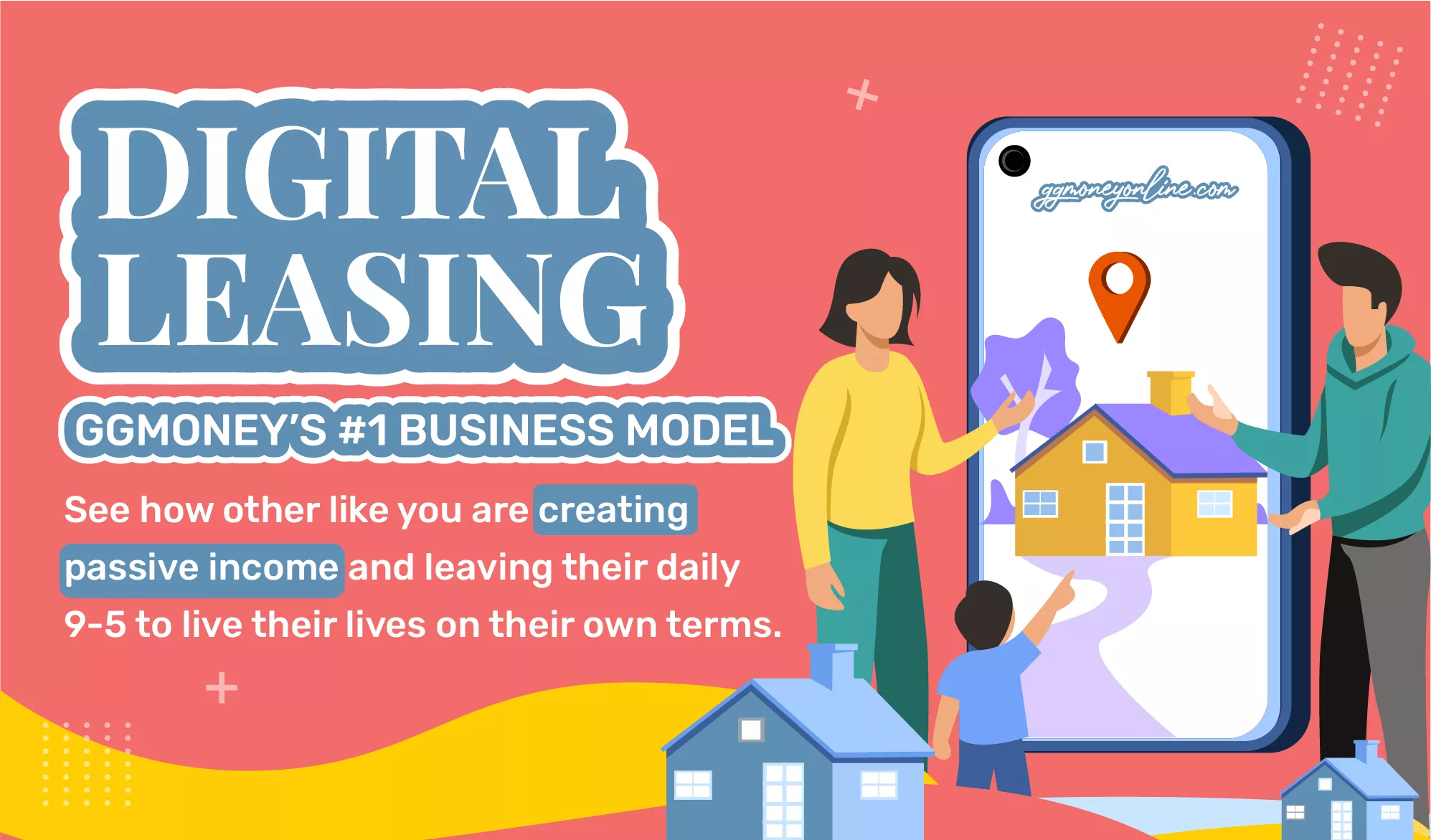
How To Start An Advertising Agency
Businesses require innovative and profitable advertising strategies to attract customers in today’s saturated digital marketing industry. Advertising agencies plan and carry out such strategies.
The advertising business in the United States earns $44 billion per year and is growing.
If you want to work in the advertising industry but don’t know where to start, you’ve come to the perfect place!
I’ll answer some of the most often asked questions about how to start an advertising agency near the end of this article…
But most importantly, I’ll show you the exact system I used to build my own Advertising Agency to over $40,000 a month in mostly passive income.
Benefits Of Starting An Advertising Agency
Low Overhead And Startup Costs
Many ad companies operate remotely, removing the need for a physical office. In most cases, you’ll have to cover the following expenses as part of your startup costs:
- Technology (hardware and software)
- Internet service
- Any necessary business registration
You don’t even need a huge team to get started. To begin, you might run the business and complete most of the deliverables on your own to save money.
Large Potential Client Base
Because of today’s digital technologies, advertising agencies can serve customers from anywhere on the globe.
Even if the marketing industry is saturated, there are lots of opportunities to establish a niche by focusing on specific types of businesses, such as salons, restaurants, law firms, or medical offices.
Low Barrier To Entry
Because the industry is always changing and expanding, it is not necessary to have years of marketing experience to start a digital advertising agency.
If you have a solid understanding of content marketing and social media, as well as a drive to learn about new and emerging platforms, you can establish yourself as a professional advertiser.
Scalability
Scaling your business will be simple if you have a solid team of affordable contractors and freelancers in place. You can deliver full-service marketing campaigns to your customers by doing the following:
- Social media
- Copywriting
- Email marketing
- Search engine optimization (SEO)
- Graphic design
- and more.
Start Your Own Advertising Agency With These 9 Steps

Now that you’ve discovered the ultimate business concept, it’s time to move forward. Starting your own business includes more than just registering papers with the state.
We’ve put together an easy-to-follow guide on launching your own ad agency. These steps will ensure that your new business is well-planned, registered, and legally compliant.
STEP 1: Plan Your Business.

A well-thought-out plan is important for being a successful entrepreneur, as it allows you to map out the details and reveal certain unknown factors.
Here are a few crucial questions to consider:
- What are the up-front and ongoing costs?
- Do you have an idea for a pricing model?
- Who is your target audience?
- How much money can you make from your clients?
- What will you call your business?
Luckily, we already done quite a bit of the legwork for you.
What Are The Costs Of Starting An Advertising Agency?
Because advertising agencies deliver services rather than products, starting an agency would require only a small capital.
Typically, you would require an office space for client meetings, PCs to finish approved projects, a printer, and an internet connection, as well as a website.
There are, however, ways to keep these costs to a minimum. Small business owners on a tight budget can:
- Rent an office space when it is really necessary.
- Work at public places such as coffee shops that provide free wi-fi.
- Use their personal computers
- Printing requirements can be outsourced.
What Are The Ongoing Expenses For An Advertising Agency?
They are as follows:
- Office rent
- Computer expenses
- Internet connection
- Salaries of employees
Employee salaries typically account for a substantial portion of the agency’s ongoing expenses.
Who Is The Target Market?
Advertising agencies’ target markets are typically other corporations, businesses, or non-profit organizations. The ideal client for a marketing agency would be one who falls under their marketing specialty and demands continuous work.
This type of customer frequently requests a retainer. A retainer is an agreement in which a customer pays an agency a set amount weekly or monthly in exchange for a set number of hours for the agency to work on their clients’ campaigns.
How Does An Advertising Agency Make Money?
Advertising agencies make money by providing their clients with advertising campaigns. Most agencies would be willing to make a sales pitch to a potential client for free.
If the costumer approves the pitch, the agency is hired to carry out their campaign proposal.
How Much Can You Charge Customers?
Advertising agencies frequently charge clients an hourly fee or a commission. According to Two Hats Consulting & Web Design Services, hourly rates are normally calculated by dividing the yearly salary of the person (or persons) who will work on a project by 1,500 (estimated number of billable hours in a year).
Typically, commissions are 15% of total media and production costs.
How Much Profit Can An Advertising Agency Make?
As previously stated, most ad agencies’ potential earnings are in the billions of dollars each year, but with lower yearly revenues.
Many businesses generate hundreds of thousands of dollars per year, depends largely to their uniqueness and niches.
Ad agencies usually produce annual revenues in the millions of dollars.
How Can You Make Your Business More Profitable?
Offering services other than traditional marketing can help an advertising agency increase its profitability.
An agency may also offer clients public relations or social media consulting services.
STEP 2: Form A Legal Entity.

The most common types of business structures are sole proprietorships, partnerships, limited liability companies (LLCs), and corporations.
If your ad agency is sued, creating a legal business entity, such as a corporation or LLC, protects you from personal liability.
You can form an LLC on your own and pay only the minimal state LLC fees, or you can hire an LLC service to handle it for you for a minimal fee.
STEP 3: Register For Taxes.

Running a business involves registration for different state and federal taxes. You must register for a variety of state and federal taxes.
To file taxes, you must first get an EIN, which is a free and simple process.
Small Business Taxes
Your taxes are strongly influenced by the type of business structure you choose.
You may have several options for how your company is taxed depending on the business form you choose. Some limited liability companies, for example, may profit more from being registered as a S corporation (S corp). However, it should be noted that your business may be subject to state taxes.
STEP 4: Open A Business Bank Account & Credit Card.

Separate business banking and credit accounts are required for personal asset protection.
When you combine your personal and business accounts, you put your personal assets (your house, car, and other property) at danger if your company is sued. This is known as “piercing your corporate veil in business law.”
Moreover, knowing how to build corporate credit can help you acquire credit cards and other forms of financing in your company’s name (rather than your own), greater lines of credit, better interest rates, and other advantages.
Open A Business Bank Account.
This separates your personal assets from your business’s assets, which is crucial for protecting your personal assets.
It also makes bookkeeping and tax filing easier.
Get A Business Credit Card.
By consolidating all of your company’s spending in one location, you can avoid mixing your personal and business expenses.
It also builds your company’s credit history, which can be used to raise finances and attract investment in the future.
STEP 5: Set Up Business Accounting.

You need to keep track of your company’s sources of income and costs in order to figure out how well your business is doing in terms of money.
Keeping precise and accurate records also simplifies yearly tax filing.
STEP 6: Obtain Necessary Permits And Licenses.

Failure to get required licenses and permits may result in penalties or the closure of your business.
Federal Business Licensing Requirements
These rules, known as “truth-in-advertising laws,” protect consumers by forcing advertisers to offer their products truthfully and to substantiate their product claims.
Failure to comply with such advertising and marketing laws may lead to expensive legal penalties, including lawsuits.
The primary federal agency in charge of implementing these advertising rules and regulations is the Federal Trade Commission (FTC).
State & Local Business Licensing Requirements
Certain state licenses and permits may be necessary to run an ad agency. To know more about your state’s licensing requirements, go to the SBA’s reference to state licenses and permits.
Most businesses are required to collect sales tax on their products and services. You may learn more about local licenses and permits by:
- Check with your town, city, or county’s clerk’s office.
- For assistance, contact one of the local associations listed in the US Small Business Associations directory of local business resources.
Services Contract
For businesses that provide services on an ongoing basis, a services contract describing the terms and conditions of service is typically established. A services agreement with your client is essential before beginning a new project.
This agreement provides a clear picture of your client’s expectations while minimizing the chance of legal issues by establishing payment terms and conditions as well as service level standards.
Certificate Of Occupancy
A typical advertising agency has a physical address. A Certificate of Occupancy (CO) is usually necessary for businesses that operate from a physical location. A CO certifies that all building codes, zoning laws, and regulatory restrictions were followed.
- If you plan to lease office space:
- Obtaining a CO is normally the responsibility of the landlord.
- Make sure your landlord has or can get a valid CO for an advertising agency before signing a lease.
- A new CO may be necessary after a major renovation. Specify in your lease agreement that lease payments will not begin until a valid CO is received.
- If you plan to acquire or build office space:
- A valid CO must be obtained from a local government body.
- Check all building codes and zoning standards for your business’s location to ensure that your agency will be compliant and able to obtain a CO.
STEP 7: Get Business Insurance.

Insurance, like licenses and permits, are necessary for your businesses to run legally and safely.
Business insurance protects your company’s finances in the event of a covered loss.
Many insurance policies are available for various types of businesses that face different risks. If you are unfamiliar with or worried about your company’s risks, begin with General Liability Insurance (GLI).
GLI is the most popular type of coverage required by small businesses, so it’s a good and safe place to start.
STEP 8: Define Your Brand.

Your company’s brand is what it stands for and how the general public views it. A brand image will help your company stand out from the competition.
How To Promote & Market An Advertising Agency.
Advertising agencies decide where to put their ads based on what type of clients they want to reach.
A local business-targeting agency, for example, may decide to put advertising in local publications and become a member of the town’s chamber of commerce.
In comparison, a company specializing in internet marketing may gain more from pay-per-click advertising.
How To Keep Customers Coming Back
Industry recognition for campaigns performed by an advertising agency may help it stand out from the crowd. Different organizations give out awards for various advertising campaigns.
A variety of organizations present these honors, including Hermes Creative Awards, Ad Age’s Small Agency Awards, Clio Awards, and Marcom Awards.
STEP 9: Create Your Business Website.

The next step is to create your company website after defining your brand and designing your business logo.
Because some people don’t know how to build a website, they might think it’s not for them.
While this was a legit issue in 2015, online technology has advanced significantly in recent years, making the lives of small business owners much easier.
The following are the main reasons why you should not delay the creation of your website any longer:
- Every legitimate business has a website. It makes no difference what size or sector your business is when it comes to going online.
- Facebook pages, LinkedIn company profiles, and other social media platforms should not be used in place of your company website.
- Website builder programs, such as the GoDaddy Website Builder, have made creating a basic website very simple. A decent website does not require the services of a web developer or designer.
Advertising Agencies: Is This Business Right For You?
Those artistic and business-savvy may be the best candidates to establish an advertising agency.
Customer sales pitches require a high level of creativity, but this must be balanced with good business judgment that considers the agency’s financial stability.
What Is Our Top Recommendation For Making Money In 2024?

Our review team has come across a program in the real estate industry that is next level!
Although it’s not real estate in the traditional sense, it’s all digital.
With Digital Leasing, you have the opportunity to completely walk away from your 9-5 job!
Sound too good to be true?
Of course it does!
But it isn’t…in fact, business owners wish they had this skill!
What exactly is the skill?
Well, basically you are acting as a conduit for small business to increase their bottom line.
What I mean is…
You are helping these businesses grow!
But how?
All you have to do is build and rank a website and forward certain jobs off to a business owner in town, you could even email it to them!
This works for literally any service based business… ie: tree service, plumbing, towing, etc.
How do you get paid and how much?
Simple, after you forward the jobs off to a business owner and he makes some money off of them, you simply ask to make the deal beneficial for each other.
A fair price to charge per lead, depending on the industry is 10-20%…let’s just use the tree service industry for example and go by worst case scenario.
Let’s say you build and rank the site and only 20 jobs a month come in. The average tree service job is anywhere from $500-$2000!
That means at bare minimum you have an asset worth $1000 a month!
See why they call it Digital Leasing now?
That’s a rent payment.
The great thing is how easy it is to scale. You don’t have to answer the phone…all you have to do is get the phone to ring.
Truly passive income!
The training program takes making money online to a whole other level. The owner of the program walks you through how to build and rank a site hand in hand, with the occasional voice over when he is sharing his screen.
You will learn the importance of keywords, website name, how to send call notifications via email, backlinking, etc.
Once the training program is completed you will also have access to a Facebook group where you can ask questions and be in a community with others on the same journey as you.
Digital Leasing allows you to have passive income with most of your day being spent OUT of the brick and mortar landscape.
Now, I know you probably have tons of questions…




